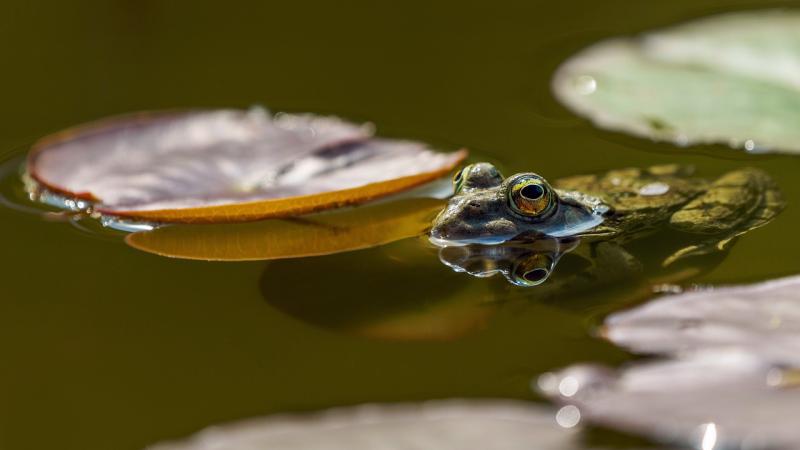
Countless organisms live on our planet. However, this biodiversity is threatened by human dominance. In particular, genetic diversity, species diversity and ecosystem diversity are affected. The main reasons for the rapid decline in biodiversity are climate change, large-scale land-use change, direct exploitation, pollution and the spread of invasive alien species. Freshwater species – from larger animals (“megafauna”), fish, amphibians, invertebrates, macrophytes to a variety of microorganisms (e.g. plankton, bacteria, fungi and viruses) – are particularly affected by these pressures. In this context, aquatic biodiversity contributes to the stability and resilience of ecosystems in the context of global change, and plays a central role in important ecosystem services such as water purification, food supply and recreational opportunities.
In the programme area “Biodiversity in a Changing World”, IGB engages in research on the drivers and implications of biodiversity loss and on how biodiversity can be conserved. The focus is on lakes, rivers and wetlands in general, including small freshwater habitats such as ponds and streams, as well as feedback mechanisms between aquatic and terrestrial systems.
Speakers
News
Downloads
Selected publications
Eco-phenotypic feedback loops differ in multistressor environments
The authors investigated how density-trait feedback loops of two ciliate species differed along a temperature and salinity gradient. They found that stressful environments decouple the density-trait feedback loop of two ciliate species.
Rapid growth and the evolution of complete metamorphosis in insects
Insects undergo complete metamorphosis, rebuilding their bodies, such as the transition from caterpillar to chrysalis to butterfly. The authors wondered why this extreme lifestyle might have evolved. Combining growth data and mathematical modelling, they found that insects grow much faster if they can grow and build the adult body in two separate stages, rather than doing both continuously.
Secchi Depth Retrieval in Oligotrophic to Eutrophic Chilean Lakes Using Open Access Satellite-Derived Products
In this study, the use of open access satellite data for estimating Secchi disk depths in 3 lakes in Chile was investigated. In the oligotrophic Lake Panguipulli, no relationship was observed between estimated and measured Secchi disk depths. This highlight the need for methodological advances in the processing of satellite-derived water quality products,s, especially for very clear waters.

Eco-Evolutionary Interactions With Multiple Evolving Species Reveal Both Antagonistic and Additive Effects
The authors investigated the ecological effects of evolution of multiple zooplankton species of their community dynamics. The study highlights that species differ in their evolution-mediated ecological effects and showcases that using the evolutionary effects on ecology of single species to predict multiple species' effects may lead to unreliable predictions.

The frequent five: Insights from interviews with urban wildlife professionals in Germany
The authors interviewed 36 urban wildlife professionals in 4 large cities in Germany. Red foxes, wild boars, raccoons, stone martens and Eurasian beavers were the five mammal species most frequently highlighted in interviews to cause human-wildlife conflicts. The interviewees emphasized the need to create refuges for beavers and better inform the public about foxes.




























